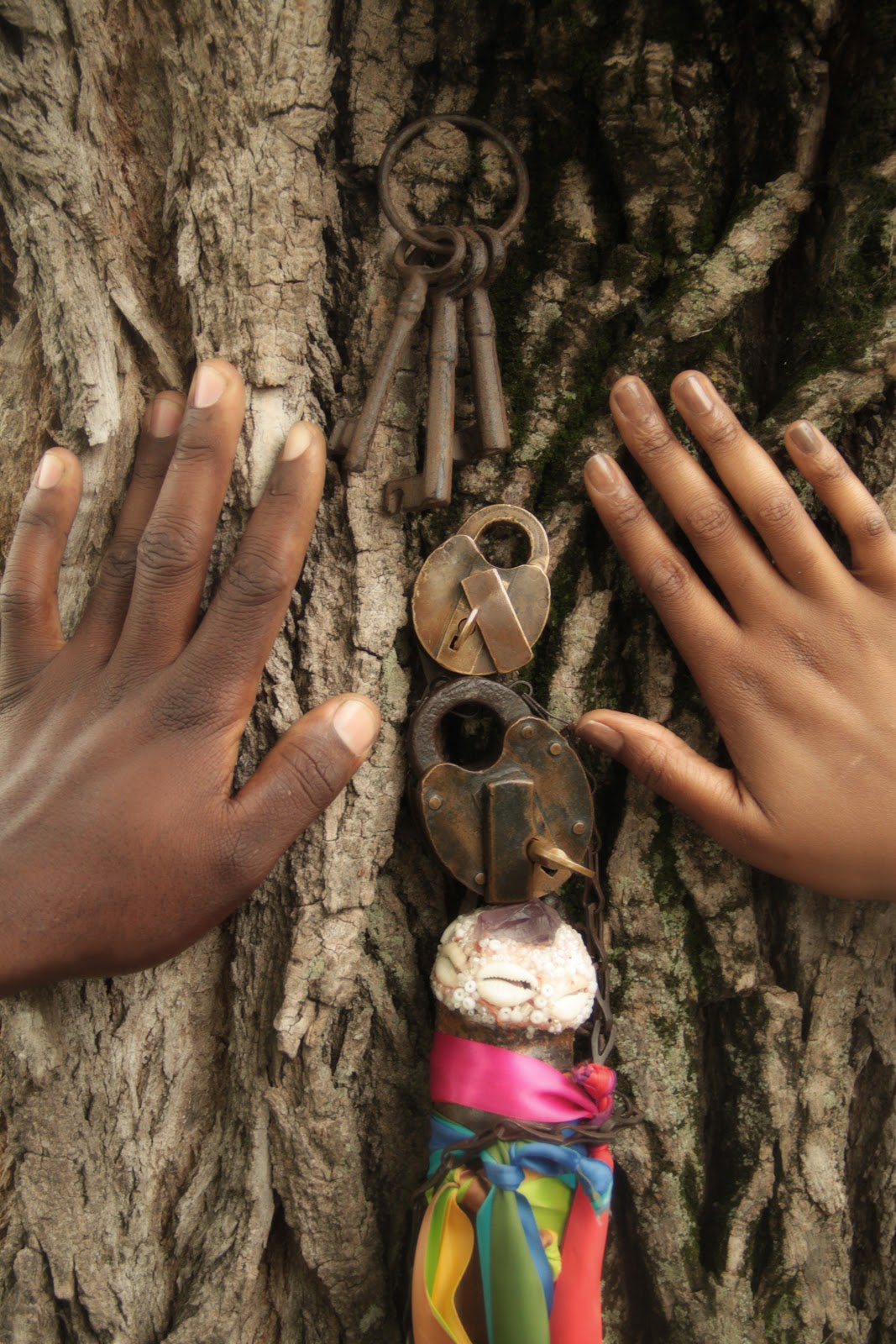The exhibit “Determined” brought about mainly negative reactions from the group. Free Egunfemi reminded us to go in with an open-mind and absorb all we can about the exhibit. She wanted us to also focus on what the exhibit was missing.
The group first sat around a table and Free Egunfemi talked to us about how she got Untold RVA started and how she thinks it is up to the people themselves and not the institutions job to share the history and stories of cultures and oppressed people. She believes that historical exhibits generally are commentaries of history and they do not go further into the history and talk about the true pain and struggles and how it exists today. Egunfemi also mentioned her disappointment that the exhibit does not mention Gabriel at all. Optimistically, she said that it can provide the opportunity for the people to share the story of Gabriel and do it with dignity and sincerity. Free Egunfemi’s mentality reminds me of the “Emergent Strategy” reading because she comes from a mindset of healing rather than hate and destruction. She carries herself with grace as she tells the horrible stories of Richmond and this country. She acknowledges the problems in her community and she mindfully adjusts to the situation and figures out ways to move past it and create a better/improving situation. Lastly, she said that the name of the exhibit itself is linguistically sad. Free Egunfemi told us that she uses the word “self-determined” to describe stories such as the story of Gabriel and how determined he was for the rebellion and to make change for himself and his people. She believes that leaving out the word “self” lessens the strength of the term and how important it is in fighting and fixing the struggles in society.
After looking at the exhibit, the group met together and we discussed our interpretations of it. First, we talked about how superficial and cheesy it was. We felt like the majority of the exhibit was spitting out textbook facts and did not make it personal. It discussed the facts and dates from the start of slavery but then it skipped many years until it reached the present. The exhibit skipped many years as if nothing bad was going on during that time which added to the superficial and insincere quality of it. The walls even go from red, to orange, to brown, to green, and then to purple. It made it seem like society was bad during the time of slavery but since slavery “ended” and we had a black president then everything is better now. The colors symbolized pain and darkness and transitioned to a good and hopeful tone. The group discussed that the exhibit tried to cover up the reality and try to divert people’s attention to the successes of black people in America but do not highlight that the problems still exist. Last year, I learned of the idea that the injustices from history still exist today but they evolved which is why people think things have gotten better but in reality it has not.
The exhibit missed a personal aspect of their history telling. Adding connections from history to today is necessary and it was lacking. Also, like I mentioned, the exhibit needs to tell the injustices that are still going on currently. They can talk about the problems going on all over the world or country but the group also talked about how it would be interesting to specifically focus on the problems existing in Richmond. Thankfully, Untold RVA exists so that it can tell those stories of the true injustices in the area.
I think that the distinction between African American history and American history is interesting and important to talk about. Yes, we can tell the story of black people but there were the oppressed and the oppressors who were part in the making of America. Calling it African American separates black people from stories of this country. Black people are the heart of America and the oppressors exploited them for their own gains. We lessen their contributions to this country and we disrespect the struggles that they went through.
I wonder what other programs are like Untold RVA around the country because I believe that they can do the real work to commemorate the oppressed better than institutions.
